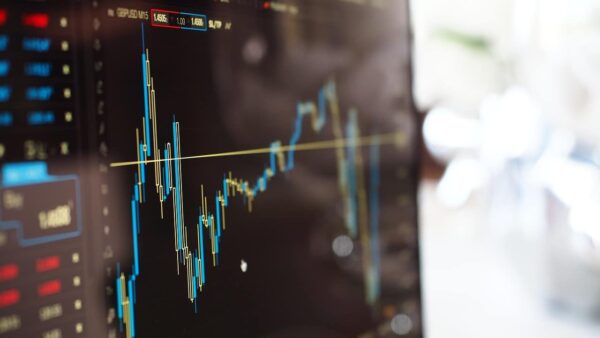Measuring Sustainability
Panel on Global Sustainability says a “future worth choosing” must be based on true costs to people and the environment.
Now more than ever, leaders need to focus on what matters most—in short, the long-term resilience of people and the planet, urged the United Nations High-level Panel on Global Sustainability in its report presented earlier this year to UN secretary-general Ban Ki-moon in Addis Ababa, Ethiopia.
The 22-member panel, established by the secretary-general in August 2010 to formulate a new blueprint for sustainable development and low-carbon prosperity, was co-chaired by Finnish president Tarja Halonen and South African president Jacob Zuma.
The panel’s final report, “Resilient People, Resilient Planet: A Future Worth Choosing,” contains 56 recommendations for putting sustainable development into practice and mainstreaming it into economic policy as quickly as possible.
“With the possibility of the world slipping further into recession, policymakers are hungry for ideas that can help them to navigate these difficult times,” said President Zuma in a press release. “Our report makes clear that sustainable development is more important than ever given the multiple crises now enveloping the world.”
Addressing the secretary-general via video, Halonen stressed the importance of placing people at the centre of achieving sustainable development. “Eradication of poverty and improving equity must remain priorities for the world community,” she noted. “The panel has concluded that empowering women and ensuring a greater role for them in the economy is critical for sustainable development.”
Call to Action
The report calls for the integration of social and environmental costs in how the world prices and measures economic activities. It also calls for a set of sustainable development indicators that go beyond the traditional use of gross domestic product as a foundational market value and recommends that governments develop and apply a set of sustainable development goals that can mobilize global action and help monitor progress.
The panel’s report underscores the importance of science as an essential guide for decision-making on sustainability issue. It calls on the secretary-general to lead efforts to produce a regular Global Sustainable Development Outlook report that integrates knowledge across sectors and institutions, and to consider creating a Science Advisory Board or Scientific Advisor.
Moving Towards the Goal
According to the report, “achieving sustainability requires us to transform the global economy. Tinkering on the margins will not do the job. The current global economic crisis, which has led many to question the performance of existing global economic governance, offers an opportunity for significant reforms. It gives us a chance to shift more decisively towards green growth—not just in the financial system, but in the real economy.”
The report says policy action is needed in a number of key areas, including:
• incorporating social and environmental costs in regulating and pricing of goods and services, as well as addressing market failures;
• creating an incentive road map that increasingly values long-term sustainable development in investment and financial transactions;
• increasing finance for sustainable development, including public and private funding and partnerships to mobilize large volumes of new financing; and
• expanding how we measure progress in sustainable development by creating a sustainable development index or set of indicators.
The report and recommendations are now in the hands of the secretary-general, who will decide if and how they should be implemented by the UN. The report provided a timely contribution to preparations for the UN Conference on Sustainable Development (Rio+20) that took place in Brazil in June.
Julie McNabb
|
Recommendations to Promote Sustainability 11. Governments and other public authorities should promote open, transparent, balanced and science-based processes for developing labeling schemes and other mechanisms that fully reflect the impact of production and consumption, and work with the private sector to ensure that labeling, corporate reporting and advocacy are accurate, cost-effective and trustworthy so as to enable consumers to make informed choices, particularly in areas of high impact on human and natural systems, without creating barriers to trade. 12. Governments should make sustainable choices more easily available, affordable and attractive to consumers by setting, together with the private sector, sustainable product standards, in accordance with the best available technology and without creating trade barriers, and by applying price incentives and disincentives. 15. Governments and international organizations should work to create a new green revolution—an “ever-green revolution”—for the twenty-first century that aims to at least double productivity while drastically reducing resource use and avoiding further loss of biodiversity, topsoil loss and water depletion and contamination, including through the scaling-up of investment in agricultural research and development, to ensure that cutting-edge research is rapidly moved from laboratory to field. 16. Governments should work towards agreement on global principles for sustainable and responsible land and water investment deals, including ongoing efforts to promote responsible agricultural investment, with particular emphasis on protecting the rights and livelihoods of poor people who depend on these basic resources, while ensuring environmental sustainability. 17. Governments should establish and scale up integrated water resource management schemes, bearing in mind that water plays multifaceted roles, including for drinking, sanitation, agriculture, industry and energy. 20. Governments should work in concert with appropriate stakeholders to ensure universal access to affordable sustainable energy by 2030, as well as seek to double the rate of improvement in energy efficiency and the share of renewable energy in the global energy mix. Governments and international organizations should promote energy-saving technologies and renewable energy through the incentivization of research and development and investment in them. To view the entire report by the High-Level Panel on Global Sustainability, visit un.org/gsp/report. |











